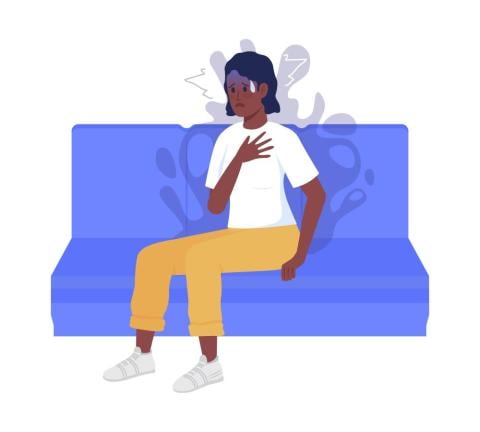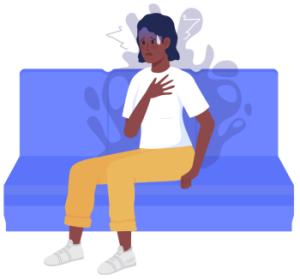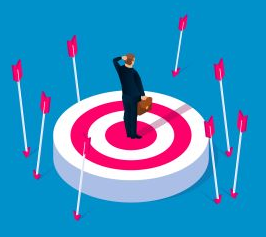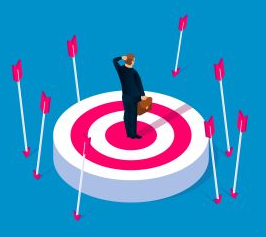Muscle tension, body soreness, headaches. For people with anxiety disorders, pain like this may be all too familiar.
Pain can be a common symptom — and sometimes a good indicator — of an anxiety disorder, particularly generalized anxiety disorder (GAD).
Beyond everyday aches and pains, some people will also suffer a diagnosed chronic pain disease such as arthritis or fibromyalgia. And a co-occurring chronic pain disease can make functioning even more difficult for someone with an anxiety disorder.
But people can manage anxiety disorders and chronic pain to lead full and productive lives.
Chronic Pain and Anxiety Disorders
Many chronic pain disorders are common in people with anxiety disorders.
Arthritis is a wide-ranging term that describes a group of more than 100 medical conditions that affect the musculoskeletal system, specifically the joints.
Symptoms include pain, stiffness, inflammation, and damage to joint cartilage and surrounding structures. Damage can lead to joint weakness, instability, and deformities that can interfere with basic daily tasks. Systemic forms of arthritis can affect the whole body and can cause damage to virtually any bodily organ or system.
Anxiety, depression, and other mood disorders are common among people who have arthritis, and very often in younger arthritis sufferers.
Fibromyalgia is a chronic medical condition that causes widespread muscle pain and fatigue. Learn more.
Migraine is severe pain felt on one or both sides of the head, normally occurring around the temples or behind one eye or ear. Learn more.
Back pain is more common in people with anxiety and mood disorders than those without them. Illness, accidents, and infections are among the causes of back pain.
Symptoms include persistent aches or stiffness anywhere along the spine; sharp, localized pain in the neck, upper back, or lower back, especially after lifting heavy objects or engaging in strenuous activity; and chronic ache in the middle or lower back, especially after sitting or standing for extended periods.
Complications
An anxiety disorder along with chronic pain can be difficult to treat. Those who suffer from chronic pain and have an anxiety disorder may have a lower tolerance for pain. People with an anxiety disorder may be more sensitive to medication side effects or more fearful of side effects than, and they may also be more fearful of pain than someone who experiences pain without anxiety.
Treatment
Many treatments for anxiety disorders may also improve chronic pain symptoms.
Medications. Some people with an anxiety disorder and chronic pain may be able to take one medication for the symptoms of both conditions, such as treating fibromyalgia with a selective serotonin reuptake inhibitor (SSRI) and some anxiolytics, tricyclic antidepressants, and monoamine oxidase inhibitors (MAOIs) that are effective for headache pain.
Cognitive-behavioral therapy (CBT) is used to treat anxiety disorders as well as chronic pain conditions. It is one type of effective therapy.
Relaxation techniques help people develop the ability to cope more effectively with the stresses that contribute to anxiety and pain. Common techniques include breathing retraining, progressive muscle relaxation, and exercise.
Complementary and alternative treatment. Yoga, acupuncture, and massage are among the complementary and alternative techniques that relieve the symptoms of anxiety disorders as well as chronic pain.
Find a mental health professional who treats anxiety and depressive disorders in your area.
Lifestyle
Many lifestyle changes that improve the symptoms of an anxiety disorder also help the symptoms of chronic pain.
Exercise. Regular exercise strengthens muscles, reduces stiffness, improves flexibility, and boosts mood and self-esteem. Always check with your doctors before beginning an exercise regimen.
Sleep. A good night’s sleep is key for anxiety disorders and chronic pain conditions. Symptoms of both types of conditions often become worse without enough sleep.
Consistent sleep and wake times, a good sleep environment (comfortable room temperature, no TV or other distractions), and avoiding caffeine late in the day and at night can help promote restful sleep.
Nutrition. People with anxiety should limit or avoid caffeine and alcohol, which can trigger panic attacks and worsen anxiety symptoms. Some types of food may aggravate some musculoskeletal conditions, including dairy products, gluten (found in wheat, oats, barley, and rye), corn, sugar, and members of the nightshade family (potatoes, tomatoes, eggplant, peppers, and tobacco).
Those who experience pain can reduce their intake of tea, coffee, alcohol, red meat, and acid-forming foods. A health professional can provide more guidance about healthful foods and which to avoid.
Getting Help
Find a Therapist near you.
Find Out More
ADAA Webinar - Understanding and Managing Chronic Pain & its Relationship with Mental Health
American Chronic Pain Association
Arthritis Foundation
Community Pain Center
National Institute of Neurological Disorders and Stroke: Chronic Pain
Back Pain Help Center (WebMD)
Trending Articles
- A congressman’s story of anxiety, pain and struggling to get help, Washington Post

















